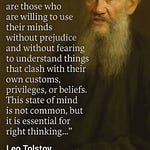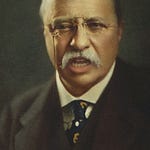Greetings, seekers of truth.
It may seem strange that I, Epicurus—often mischaracterized as a hedonist by those who have not studied me deeply—would speak against wealth. But allow me to clarify: I never despised riches. I simply saw them for what they were—a tool, not a purpose. And when tools become idols, they enslave their makers.
The unexamined pursuit of wealth is not liberty. It is bondage disguised as abundance. For what is freedom if one is never content? What is wealth if one always desires more? The rich man, always chasing the next pleasure, the next possession, the next status symbol, is not free. He is ensnared.
True freedom, my friends, is the absence of need. And the greatest wealth is needing little.
When I said that the rich are addicted to more, I did not speak from bitterness. I spoke from a garden. A humble one, with simple food, kind company, and a roof that did not leak. There, in simplicity, we studied nature, pondered the cosmos, and tasted the richest pleasure of all: peace of mind.
Let us not confuse pleasure with indulgence. The former is the gentle fulfillment of nature’s needs. The latter is the overgrowth of vanity. To eat when hungry is pleasure. To feast for spectacle is addiction. To rest is pleasure. To hoard sleep in opulence while others suffer is excess.
In my time, the powerful men of Athens built empires but could not calm their minds. They owned lands but could not sleep without worry. They dined on gold plates but starved for joy. Why? Because they did not understand limits. They did not understand the art of enough.
And now, centuries hence, I look upon your world and see that the lesson remains unlearned.
You have built towers that scrape the skies, but you scrape your souls against deadlines. You have devices in your palms with the knowledge of centuries, yet you scroll past wisdom in search of distraction. The hunger is endless. The appetite, inflamed.
And those who are richest in coin are often poorest in stillness. They build fortunes, but cannot build friendships. They fly in private jets but never land in the present. Their names are known, their brands celebrated—but when they close their doors at night, are they at peace?
No. Because addiction to more is not the road to happiness—it is a detour from it.
So what, then, is to be done?
Start by asking this: What do you truly need to be well?
Not to appear well. Not to impress others. But to be well in the marrow of your being.
A quiet meal. A kind friend. A body not wracked with disease. A mind not haunted by envy. These are the components of real wealth. They are not sold on any stock exchange. They are not captured by quarterly profits. They are found when you stop chasing what you don’t need.
Understand that death comes to all. Even kings. Even tycoons. Even those who bought islands to hide from their fear. And when death arrives, no riches will follow—only the weight of a life spent in pursuit of vanity or virtue.
My advice to you, here and now:
Desire what you already have.
Cultivate the art of sufficiency.
Celebrate frugality—not as denial, but as freedom.
Befriend wisdom, not ambition.
Let your pleasures be simple and your friendships sincere.
You need not renounce the world. Only your slavery to it.
I leave you with this:
To the poor man who knows his limits, I say: you are richer than emperors.
To the rich man who knows no limit, I say: you are poorer than the beggar who sleeps in peace.
The only treasure worth guarding is tranquility of soul. And that, I promise you, requires no fortune—only the courage to stop needing more.
—Epicurus










